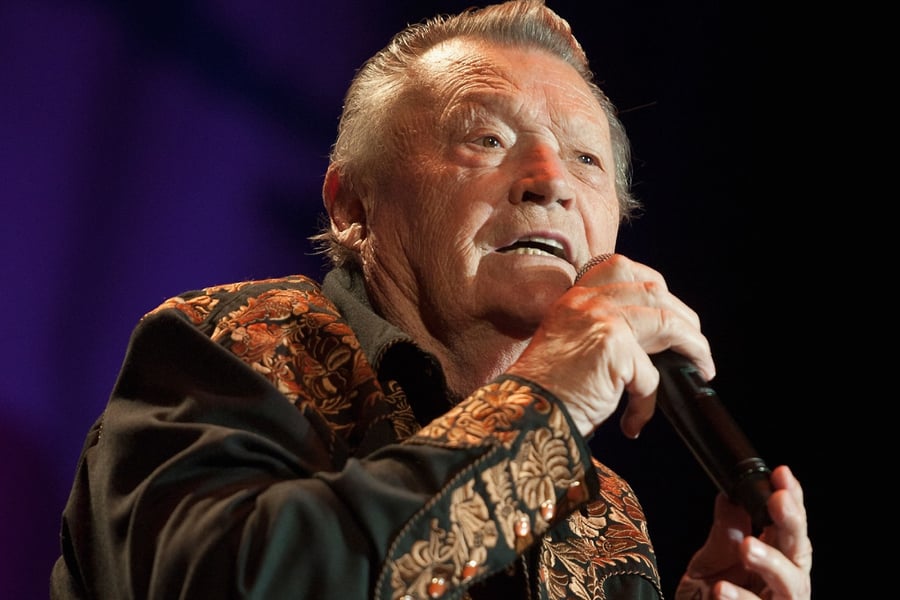Stonewall Jackson, the country music singer known for the Number One hit “Waterloo” and a 60-plus-year tenure with the Grand Ole Opry, died Saturday at 89. The Opry confirmed Jackson’s death in a release that noted he had been suffering from vascular dementia.
Jackson is a curious figure in country music: Stonewall is his given name, not a nickname or assumed moniker. His father named him after the Confederate Army general and claimed to be one of his descendants.
He is also the only member of the Grand Ole Opry to become a member before ever releasing music. In fact, the North Carolina native was invited to join the cast of the country music radio show upon his initial visit to Nashville in November 1956. After impressing music publisher Wesley Rose with a short performance, Rose introduced him to the Opry brass, including the show’s founder George D. Hay. He hired him on the spot. “They took me down the hall and signed me to a regular member’s contract. I’ve been here ever since,” Jackson said in his member bio on the Opry website.
Two years after joining the Grand Ole Opry, Jackson released his debut single, “Life to Go,” a cautionary prison ballad written by George Jones. The two would go on to hold “a special friendship over the years,” Jones’ widow Nancy Jones said in a statement following Jackson’s death. His signature “Waterloo” followed in 1959. Written by John D. Loudermilk and Marijohn Wilkin, the song recounted the demise of figures like Napoleon and the biblical Adam. “Just for spite / the devil made him take a bite / and that’s where old Adam / met his Waterloo,” he sang in his easygoing twang.
Future hits included 1962’s “A Wound Time Can’t Erase,” the 1964 story-song “B.J. the D.J.,” and 1965’s “I Washed My Hands in Muddy Water,” which Elvis Presley vamped his way through in 1971. In 1979, Jackson paid tribute to a fellow friend of Jones — Johnny Paycheck — with “Listening to Johnny Paycheck,” yet another prison song.
Jackson continued to perform well into his later years, including at the Grand Ole Opry, whom he sued for $10 million in 2007 claiming age discrimination. (The case was settled out of court.) In 2012, he sang with Marty Stuart at Stuart’s annual Late Night Jam at Nashville’s Ryman Auditorium, and paid tribute to George Jones at a memorial concert to the Possum following Jones’ death in 2013.
From Rolling Stone US
Love Music?
Get your daily dose of everything happening in Australian/New Zealand music and globally.




































